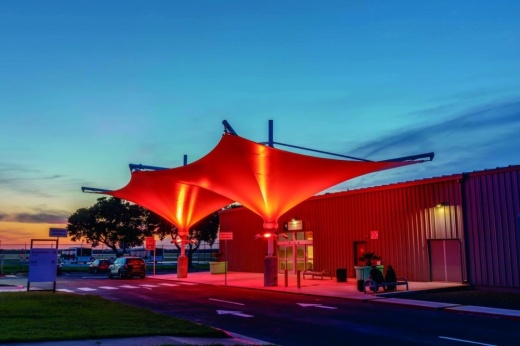In a memo addressed to city leadership July 13, staff said closing the terminal paves the way for the construction of Midfield Concourse B, a new concourse with 10 or more gates and two new taxiways laid out in the newly announced ABIA Airport Expansion Development Program.
The memo added that the concourse will be able to expand beyond its initial 10-gate capacity.
While the timeline for the program is subject to change, ABIA spokesperson Sam Haynes said the program "will guide growth and expansion at the airport over the next five to seven years."
The creation of the AEDP became necessary due to the pandemic’s impact on air travel, according to an ABIA press release.
However, data from the city of Austin Department of Aviation shows air travel has started to bounce back, with summer 2021 on pace to match or surpass summer 2019 flights.
“With this program, we are transforming the future of [ABIA]—without the need for taxpayer funding,” ABIA CEO Jacqueline Yaft said in a press release. “We will create the infrastructure and facilities needed to support our growing city and our airline partners as they continue to invest in Austin.”
The memo added the removal of the South Terminal must be done in a “timely manner” to ensure the airport can keep up with demand. The department of aviation’s high-growth projection shows more than 25 million passengers coming through the airport by 2030—up from 17.3 million in 2019.
To meet that growth, the memo stated ABIA will also need to optimize its main concourse, the Barbara Jordan Airport Terminal, including adding a new baggage handling system, expanding gate capacity and ticket counters, and adding a new utility plant.
There is not a budget for the entire program at this time, but officials estimate the terminal improvements will cost approximately $325 million. Funding for the new projects will come from airport cash reserves, airport revenue, future revenue bond proceeds and Federal Aviation Administration grants, according to the press release.
The South Terminal services ultra-low-cost carriers, Allegiant Travel Co. and Frontier Airline.
According to the memo, those airlines will not experience any service interruptions.





